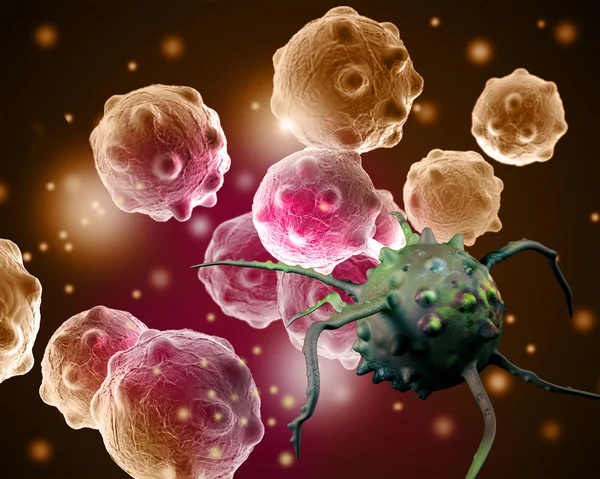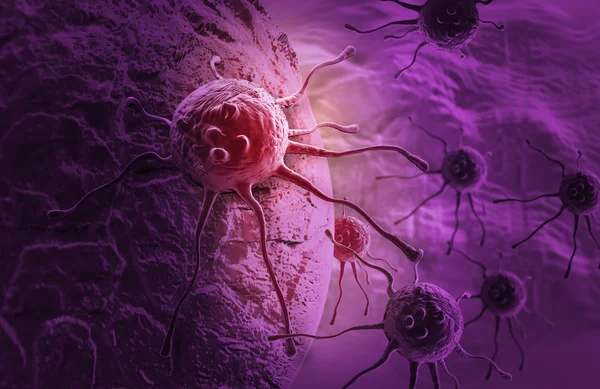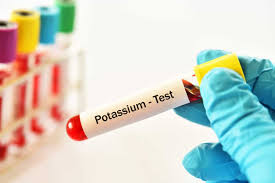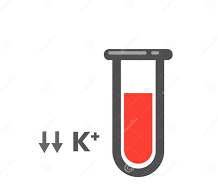Hypokalemia, commonly known as low potassium levels, is a condition where the concentration of potassium in the blood falls below the normal range of 3.6 to 5.2 millimoles per liter.
Is low potassium a sign of cancer? Potassium is a vital electrolyte that plays a crucial role in maintaining various bodily functions, including nerve signal transmission, muscle contraction, and fluid balance. The body’s potassium levels are tightly regulated by the kidneys, which filter excess potassium and excrete it in urine. When this balance is disrupted, it can lead to several health issues, ranging from mild symptoms like muscle weakness to severe complications such as cardiac arrhythmias.
Table of Contents
Toggle- Importance Of Recognizing Its Health Implications
- What is Potassium and Why is it Important?
- What is Hypokalemia?
- Common Causes of Low Potassium Levels
- Is Low Potassium a Sign of Cancer?
- Symptoms of Low Potassium That Could Indicate Cancer
- How to Test for Low Potassium Levels
- Early Detection and Its Significance
- Managing Low Potassium Levels
- Healthcare and Nursing Implications
- Frequently Asked Questions (FAQs)
- Conclusion
Importance Of Recognizing Its Health Implications
Recognizing and understanding the health implications of hypokalemia is essential because it can indicate underlying medical conditions. While some causes of low potassium levels are benign and easily treatable, others may be linked to more serious health concerns.
Timely diagnosis and appropriate management of hypokalemia can prevent potential complications and improve patient outcomes. Moreover, awareness about the possible connection between hypokalemia and other diseases can aid in early detection and intervention, ultimately enhancing overall health and wellbeing.
Connection Between Low Potassium and Cancer
Recent research has suggested a potential link between low potassium levels and cancer. Although hypokalemia is not a definitive marker of cancer, certain types of malignancies and their treatments can lead to decreased potassium levels. For instance, cancers affecting the kidney or gastrointestinal tract can directly impact potassium regulation.
Additionally, some chemotherapy drugs and other cancer treatments can cause electrolyte imbalances, including hypokalemia. Understanding the relationship between hypokalemia and cancer can help in identifying patients at risk and managing their treatment more effectively.
What is Potassium and Why is it Important?

Role of Potassium in the Body
Potassium is a crucial mineral and electrolyte that plays several vital roles in maintaining the body’s normal functions. Its importance cannot be overstated, as it is involved in:
Muscle Contractions
Potassium is essential for proper muscle function. It helps regulate muscle contractions, including those of the heart and skeletal muscles. Low potassium levels can lead to muscle weakness, cramps, and in severe cases, paralysis.
Nerve Signals
Potassium is integral to the conduction of nerve signals. It maintains the electrical gradients across cell membranes, which are necessary for nerve impulse transmission. Hypokalemia can disrupt these signals, leading to neurological symptoms such as tingling, numbness, or even changes in mental status.
Fluid Balance
Potassium helps maintain the body’s fluid balance by working with sodium. This balance is crucial for ensuring that cells and tissues are properly hydrated, and it plays a role in maintaining blood pressure. Low potassium levels can cause fluid imbalances, contributing to conditions such as dehydration or edema.
Heart Function
One of the most critical roles of potassium is in heart function. It helps regulate heartbeat and is vital for maintaining a regular cardiac rhythm. Hypokalemia can cause arrhythmias, which can be life-threatening if not addressed promptly.
Normal Potassium Levels
The normal range for potassium levels in the blood is between 3.6 to 5.2 millimoles per liter (mmol/L). Levels below this range are considered hypokalemic. Maintaining potassium within this range is essential for optimal bodily functions, particularly for the cardiovascular and neuromuscular systems.
Causes of Low Potassium Levels
Several factors can lead to low potassium levels, each of which may have different implications for health:
- Inadequate Dietary Intake: Not consuming enough potassium-rich foods can lead to hypokalemia. Potassium is found in foods like bananas, oranges, spinach, and potatoes.
- Excessive Losses: Conditions that cause excessive loss of potassium, such as prolonged vomiting, diarrhea, or the use of certain diuretics, can result in hypokalemia.
- Medical Conditions: Diseases affecting the kidneys or gastrointestinal tract can disrupt potassium balance. For example, chronic kidney disease or conditions like Crohn’s disease can lead to significant potassium losses.
- Medications: Some medications, including certain diuretics, laxatives, and chemotherapy drugs, can cause the body to lose too much potassium.
- Hormonal Imbalances: Disorders affecting hormones like aldosterone, which regulates potassium levels, can also lead to hypokalemia.
What is Hypokalemia?

Definition of Hypokalemia
Hypokalemia is defined as a condition where the potassium levels in the blood fall below the normal range of 3.6 to 5.2 millimoles per liter (mmol/L). Potassium is essential for various cellular functions, and its deficiency can disrupt multiple physiological processes. When blood potassium levels drop significantly, it can lead to a variety of symptoms and health issues, some of which can be severe.
Common Symptoms of Hypokalemia
Muscle Weakness
One of the earliest and most common symptoms of hypokalemia is muscle weakness. Potassium is vital for muscle function, and its deficiency can impair muscle contractions, leading to generalized weakness.
Cramps
Muscle cramps are another frequent symptom associated with low potassium levels. These cramps are often painful and can affect different parts of the body, including the legs, arms, and abdomen.
Fatigue
Fatigue is a common symptom of hypokalemia due to its impact on muscle function and overall cellular energy production. Individuals with low potassium levels often experience persistent tiredness and lack of energy.
Irregular Heartbeat
Potassium plays a crucial role in maintaining normal heart rhythms. Hypokalemia can cause arrhythmias, which are irregular heartbeats that can range from mild palpitations to severe, life-threatening conditions.
Constipation
Low potassium levels can affect the muscles of the digestive tract, leading to slowed bowel movements and constipation. This symptom occurs because potassium is necessary for smooth muscle function in the intestines.
Severe Symptoms and Complications
In severe cases, hypokalemia can lead to more serious symptoms and complications:
- Severe Muscle Paralysis: Extremely low potassium levels can cause muscle paralysis, affecting the ability to move and, in severe cases, respiratory muscles, which can impair breathing.
- Rhabdomyolysis: This condition involves the breakdown of muscle tissue, releasing muscle fibers into the bloodstream, which can cause kidney damage.
- Cardiac Arrest: Severe hypokalemia can lead to critical heart issues, including cardiac arrest, especially in individuals with pre-existing heart conditions.
Common Causes of Low Potassium Levels

Digestive Disorders
Digestive disorders can significantly impact fluid and salt balance in the body, leading to low potassium levels. Conditions such as inflammatory bowel disease (IBD), Crohn’s disease, and ulcerative colitis can cause chronic diarrhea and malabsorption, resulting in potassium loss. Eating disorders like bulimia and anorexia can also contribute to hypokalemia due to repeated vomiting and inadequate dietary intake.
Adrenal Gland Disorders
The adrenal glands produce aldosterone, a hormone that helps regulate potassium levels by promoting its excretion in the urine. Disorders such as hyperaldosteronism, where the body produces too much aldosterone, can lead to excessive potassium loss. Congenital adrenal hyperplasia (CAH) is another condition that affects adrenal gland function and can result in hypokalemia.
Kidney Problems
The equilibrium of potassium is vitally maintained by the kidneys. Chronic kidney disease (CKD) can impair the kidneys’ ability to regulate potassium levels, often leading to hypokalemia. Specific syndromes like Bartter Syndrome, a rare inherited condition, disrupt the kidneys’ function, causing significant potassium loss.
Metabolic Disorders
Metabolic disorders, including complications related to diabetes, can cause low potassium levels. Diabetic ketoacidosis, a severe complication of diabetes, leads to significant potassium shifts and losses. Metabolic alkalosis, a condition where the blood becomes too alkaline, also causes potassium to move into cells, reducing its levels in the bloodstream.
Certain Medications
Various medications can lead to hypokalemia. Diuretics, commonly used to treat high blood pressure and fluid retention, increase potassium excretion in the urine. Other medications, such as glucocorticoids, mannitol, and high-dose penicillin, can also cause potassium depletion.
Excessive Sweating (Hyperhidrosis)
Excessive sweating, or hyperhidrosis, can lead to significant potassium loss, especially in hot climates or during intense physical activity. This is because potassium is lost through sweat, and prolonged sweating can deplete the body’s potassium reserves.
Alcohol Abuse
Chronic alcoholism can cause hypokalemia through various mechanisms, including poor dietary intake, vomiting, and diarrhea. Alcohol can also directly affect the kidneys’ ability to retain potassium, exacerbating the condition.
Intense Physical Activity
Intense physical activity can induce hypokalemia, particularly in endurance sports. During prolonged exercise, potassium is lost through sweat, and if not replenished, this can lead to a drop in blood potassium levels.
Dietary Deficiency
A diet low in potassium-rich foods is a common cause of hypokalemia. Potassium is found in many foods, including bananas, oranges, spinach, and potatoes. Ensuring adequate intake of these foods is essential to maintain normal potassium levels.
Is Low Potassium a Sign of Cancer?

General Link Between Low Potassium and Cancer
The connection between low potassium levels and cancer is a subject of ongoing research. While hypokalemia itself is not a definitive indicator of cancer, it can be associated with various malignancies. Regular monitoring of potassium levels is crucial, especially for individuals undergoing cancer treatment, as both the disease and its treatment can significantly affect electrolyte balance. Understanding the potential link between low potassium and cancer can aid in early detection and management, improving patient outcomes.
Specific Cancer Types Associated with Low Potassium
Gastrointestinal Cancers
Cancers of the gastrointestinal tract, such as colon, stomach, and pancreatic cancer, can disrupt potassium levels. These cancers often cause vomiting, diarrhea, and malabsorption, leading to significant potassium loss. Moreover, treatments like chemotherapy can exacerbate these effects, making regular monitoring essential.
Blood-Related Cancers
Leukemia and other blood-related cancers can also be associated with low potassium levels. These malignancies can affect the body’s ability to produce and regulate essential electrolytes. Additionally, chemotherapy used to treat these cancers often leads to significant potassium shifts, necessitating careful management of electrolyte levels.
Lung Cancer
Lung cancer, particularly small cell lung cancer (SCLC) and non-small cell lung cancer (NSCLC), has been linked to electrolyte imbalances, including hypokalemia. The aggressive nature of these cancers, along with their treatment protocols, can result in substantial potassium depletion. Monitoring potassium levels in patients with lung cancer is crucial to avoid severe complications.
Mechanisms
Effects of Cancer Cells and Chemotherapy on Potassium Levels
Cancer cells and chemotherapy treatments can significantly impact potassium regulation. Chemotherapy drugs often lead to nausea, vomiting, and diarrhea, which can cause substantial potassium loss. Additionally, certain cancer cells can alter the body’s normal metabolic processes, affecting potassium levels.
Tumor Growth and Impact on Potassium Regulation
The growth of tumors can influence potassium regulation in various ways. Tumors in the gastrointestinal tract can cause blockages, leading to vomiting and diarrhea, which result in potassium loss. Furthermore, tumors can secrete hormones and other substances that disrupt normal electrolyte balance.
Paraneoplastic Processes and Electrolyte Imbalances
Paraneoplastic syndromes are disorders triggered by an immune response to a cancer that can affect organs and tissues distant from the primary tumor. These syndromes can lead to significant electrolyte imbalances, including hypokalemia. For instance, some tumors produce substances that mimic hormones, disrupting normal potassium regulation and leading to low potassium levels.
Symptoms of Low Potassium That Could Indicate Cancer

Common Indicators of Underlying Health Issues
Persistent Low Energy
One of the common indicators of low potassium levels that could point to underlying health issues, including cancer, is persistent low energy. Potassium is essential for cellular energy production and muscle function. Chronic fatigue despite adequate rest and nutrition may suggest hypokalemia and warrants further investigation.
Unexplained Weight Loss
Unexplained weight loss is another significant symptom that can be associated with both low potassium levels and cancer. Weight loss, especially when combined with other symptoms like fatigue and muscle weakness, should prompt a comprehensive medical evaluation to rule out malignancies or other serious conditions.
Digestive Issues
Digestive problems, including chronic diarrhea, constipation, and abdominal pain, can be linked to low potassium levels and may indicate an underlying cancer. Gastrointestinal cancers, in particular, can cause significant disruptions in potassium balance due to their effects on the digestive system.
Specific Cancer Signs
Colon Cancer and Low Potassium Levels
Colon cancer can be specifically associated with low potassium levels. The cancer may cause chronic bleeding, diarrhea, or vomiting, all of which contribute to potassium loss. Additionally, the body’s response to the tumor can alter metabolism and electrolyte balance, leading to hypokalemia.
Other Cancers and Their Impact on Potassium Balance
Other types of cancer, including stomach, pancreatic, and blood-related cancers like leukemia, can also affect potassium levels. These cancers might cause symptoms such as nausea, vomiting, and poor appetite, which in turn lead to decreased potassium intake and increased losses.
How to Test for Low Potassium Levels

Overview of Potassium Blood Test
Testing for low potassium levels is typically done through a potassium blood test, which measures the concentration of potassium in the blood. This test is often part of a routine metabolic panel or electrolyte panel. It involves drawing a small blood sample from a vein, usually in the arm. The sample is then analyzed in a laboratory to determine the potassium level.
Normal Ranges for Potassium Levels
The normal range for potassium levels in the blood is between 3.6 and 5.2 millimoles per liter (mmol/L). Levels below 3.6 mmol/L indicate hypokalemia. Slight deviations from the normal range can cause mild symptoms, but significant drops in potassium levels can lead to severe health complications.
Importance of Regular Screenings
Regular screenings for potassium levels are essential, especially for individuals with risk factors such as chronic diseases, those undergoing certain treatments like chemotherapy, and those with symptoms of hypokalemia. Early detection of low potassium levels can prevent serious health issues and allow for timely interventions. Regular monitoring is crucial for managing chronic conditions and ensuring overall health and well-being.
Early Detection and Its Significance
Importance of Monitoring Potassium Levels
Monitoring potassium levels is crucial for maintaining overall health and detecting potential health issues early. Regular potassium level checks can help identify imbalances that might indicate underlying conditions, including cancer. Persistent hypokalemia can be an early warning sign, prompting further investigation and diagnosis.
Benefits of Early Detection in Preventing Complications
Early detection of low potassium levels can prevent severe complications such as cardiac arrhythmias, muscle weakness, and paralysis. By identifying and addressing hypokalemia early, healthcare providers can implement timely interventions to correct potassium imbalances, thereby avoiding these serious health risks. Additionally, early detection helps manage symptoms more effectively, improving patient quality of life.
Role in Improving Cancer Treatment Outcomes
For cancer patients, early detection of low potassium levels plays a significant role in optimizing treatment outcomes. Maintaining normal potassium levels is essential for patients undergoing chemotherapy or other cancer treatments, as these therapies can exacerbate electrolyte imbalances. Monitoring and managing potassium levels can reduce treatment-related side effects, enhance tolerance to therapy, and improve overall prognosis.
Managing Low Potassium Levels

Dietary Changes
Increasing Intake of Potassium-Rich Foods
One of the most effective ways to manage low potassium levels is through dietary changes. Increasing the intake of potassium-rich foods can help restore and maintain normal potassium levels. Some of the best sources of dietary potassium include:
- Bananas: A well-known source of potassium, bananas are easy to incorporate into the diet.
- Sweet Potatoes: Rich in potassium and other essential nutrients, sweet potatoes are versatile and nutritious.
- Spinach: Leafy greens like spinach provide a significant amount of potassium and other vitamins.
- Beans: Various beans, including black beans and kidney beans, are excellent sources of potassium.
- Oranges and Orange Juice: Citrus fruits and their juices are also good sources of potassium.
- Avocados: High in healthy fats and potassium, avocados can be added to many dishes.
- Tomatoes: Including fresh tomatoes or tomato-based products can help boost potassium intake.
Avoiding Processed Foods High in Sodium
To manage low potassium levels effectively, it is also important to avoid processed foods that are high in sodium. High sodium intake can exacerbate potassium loss by promoting its excretion through the kidneys. Reducing consumption of processed snacks, canned foods, and fast food can help maintain a better balance of electrolytes.
Medication Options
Prescription of Potassium Supplements
In cases where dietary changes are insufficient to correct hypokalemia, healthcare providers may prescribe potassium supplements. These supplements are available in various forms, including tablets, capsules, and liquid solutions. They help to quickly replenish potassium levels and prevent the complications associated with hypokalemia.
Adjusting Diuretics and Other Medications
Certain medications, particularly diuretics, can contribute to potassium loss. In managing low potassium levels, healthcare providers may need to adjust these medications. This could involve switching to potassium-sparing diuretics or reducing the dosage of current medications. Additionally, monitoring and adjusting other drugs that affect potassium levels, such as glucocorticoids and some antibiotics, can help manage hypokalemia effectively.
By making appropriate dietary changes and using medication options when necessary, it is possible to manage low potassium levels and prevent potential complications.
Healthcare and Nursing Implications

Importance of Healthcare Provider Consultation
Consulting healthcare providers is crucial for individuals experiencing low potassium levels, especially when linked to serious conditions like cancer. Healthcare providers can perform thorough assessments, identify underlying causes, and develop appropriate treatment plans. Regular consultations ensure that potassium levels are monitored and managed effectively, preventing complications associated with hypokalemia.
Personalized Care Plans for Cancer Patients
For cancer patients, personalized care plans are essential. Each patient’s needs vary based on the type of cancer, stage of the disease, and treatment regimen. Personalized care plans should include strategies to manage potassium levels, such as dietary recommendations, medication adjustments, and regular blood tests. These plans help optimize patient health and improve the effectiveness of cancer treatments.
Monitoring and Managing Potassium Levels During Treatment
Cancer treatments, including chemotherapy and radiation, can significantly impact potassium levels. Continuous monitoring of potassium levels is necessary to detect and address hypokalemia early. This involves regular blood tests and close observation of symptoms. Managing potassium levels may require dietary changes, supplements, or medication adjustments to maintain electrolyte balance and prevent treatment interruptions.
Assessment Strategies for Nurses
Nurses play a critical role in assessing and managing hypokalemia in cancer patients. Effective assessment strategies include:
- Regular Monitoring: Conducting routine blood tests to check potassium levels.
- Symptom Observation: Monitoring patients for signs of hypokalemia, such as muscle weakness, fatigue, and irregular heartbeats.
- Patient Education: Educating patients about the importance of potassium in their diet and potential symptoms of low levels.
- Record Keeping: Maintaining detailed records of potassium levels and interventions to track progress and adjust care plans as needed.
Intervention Techniques for Managing Hypokalemia in Cancer Patients
Nurses can employ several intervention techniques to manage hypokalemia in cancer patients:
- Dietary Interventions: Encouraging the intake of potassium-rich foods and advising on dietary adjustments to reduce sodium intake.
- Supplement Administration: Administering prescribed potassium supplements and ensuring proper dosage and adherence.
- Medication Management: Collaborating with healthcare providers to adjust medications that may affect potassium levels, such as diuretics and certain chemotherapies.
- Hydration Management: Ensuring adequate hydration to help maintain electrolyte balance, especially in patients experiencing vomiting or diarrhea.
By implementing these healthcare and nursing strategies, hypokalemia in cancer patients can be effectively managed, enhancing overall treatment outcomes and quality of life.
Frequently Asked Questions (FAQs)
Is Low Potassium a Common Symptom of Cancer?
Low potassium, or hypokalemia, is not a definitive symptom of cancer, but it can be associated with certain types of cancer and their treatments. Cancers affecting the gastrointestinal tract, kidneys, or those that cause excessive vomiting and diarrhea can lead to significant potassium loss. Regular monitoring is essential for patients undergoing cancer treatment, as therapies like chemotherapy can exacerbate potassium imbalances.
How Can I Test for Low Potassium Levels?
Testing for low potassium levels involves a simple blood test known as a serum potassium test. This test determines how much potassium is in your blood. It is usually part of a comprehensive metabolic panel (CMP) or an electrolyte panel. If you suspect low potassium levels due to symptoms like muscle weakness or irregular heartbeats, consult your healthcare provider for testing.
How Important Is It to Find Low Potassium Levels Early?
Early detection of low potassium levels is crucial in preventing serious health complications such as cardiac arrhythmias, muscle weakness, and paralysis. For cancer patients, maintaining normal potassium levels is particularly important to avoid interruptions in treatment and to manage side effects more effectively. Early intervention can improve overall treatment outcomes and quality of life.
Is Risk of Associated Health Problems Reduced by Managing Low Potassium Levels?
Yes, managing low potassium levels can significantly reduce the risk of associated health issues. Adequate potassium levels are essential for normal muscle function, nerve signal transmission, and heart function. By maintaining proper potassium levels through diet, supplements, and medication adjustments, you can prevent complications such as cardiac issues and muscle weakness, enhancing overall health.
Are There Specific Signs Related to Colon Cancer and Low Potassium Levels?
Colon cancer can be associated with low potassium levels due to chronic bleeding, diarrhea, or vomiting, all of which contribute to potassium loss. Symptoms like persistent fatigue, unexplained weight loss, and digestive issues combined with low potassium levels might indicate colon cancer. If you experience these symptoms, it is important to consult a healthcare provider for further evaluation and appropriate testing.
Conclusion

Understanding the potential link between low potassium levels and cancer is crucial for early detection and effective management of both conditions. Hypokalemia can be a symptom of various underlying health issues, including cancer. Recognizing this connection helps in prompt diagnosis and intervention, thereby preventing severe complications associated with untreated low potassium levels.
Proactive health management and regular screenings are vital in maintaining optimal health. Regular monitoring of potassium levels, especially for individuals at risk or undergoing cancer treatment, can lead to early identification of imbalances. This proactive approach allows for timely interventions, dietary adjustments, and medication management to ensure electrolyte balance and overall health.
Addressing hypokalemia in cancer care is essential for improving treatment outcomes and patient quality of life. Maintaining normal potassium levels helps manage side effects of cancer therapies and supports overall physiological function. Healthcare providers and patients should work together to monitor and manage potassium levels, integrating this aspect into comprehensive cancer care strategies. By doing so, they can enhance treatment efficacy and improve the patient’s well-being.
Read Also:
-
Expert Guide On The L484 Pill: Dosage, Interactions, And Safety
-
What Is Farmapram? Understand The Uses, Side Effects, And Safety Tips Of This Mexican Xanax
-
Lump Behind Ear: Causes, Symptoms, When To Be Concerned, And Effective Treatments
-
Sperm Cramps: Causes, Symptoms, Diagnosis, and Effective Treatment Options
